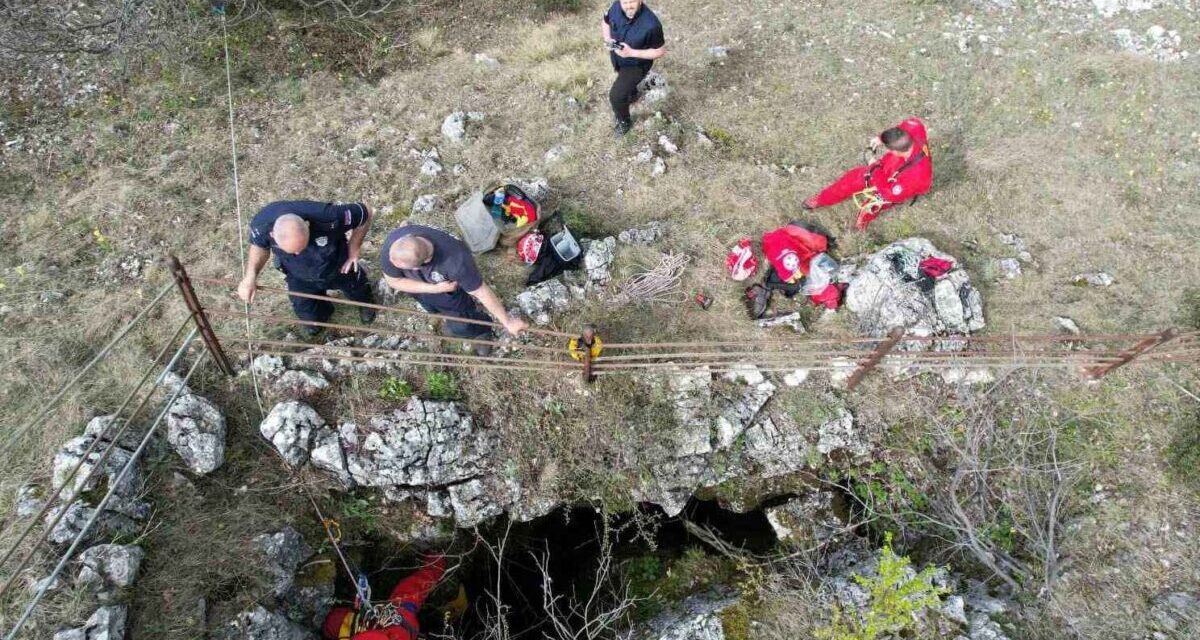The child was first hit, then strangled, and his body was hidden. The Serbian head of state would bring back the death penalty, but this could also stop the country's EU integration.
The possibility of bringing back the death penalty in Serbia came to the fore in connection with the cruel murder of a two-year-old girl. President Aleksandar Vucsic came up with the proposal, and it is expected that its adoption would gain great support among the population, as the case of Danka Ilic caused a huge indignation.
"Despite the fact that we are talking about very serious crimes, which have deeply shaken the entire Serbian society, we are talking about individual perpetrators and cases".
This is what Erik Palusek said when asked by the Hungarian Nation. The Chief Referee of the International Director's Office of the National Public Service University (NKE) emphasized: this is an act that every normal person deeply condemns.
The child disappeared on March 26 in a suburb of Bor in eastern Serbia. He was with his mother and brother when the mother briefly left him unattended to give water to the other child. The parents immediately notified the police, who began an investigation and a thorough search of the area.
For the first time in Serbia, the Amber Alert system has also been put into operation, the essence of which is to immediately involve the entire population, the media, railway stations, highway operators, mobile service providers and all other relevant sectors in the search.
The research took place for ten days.
They combed through the surrounding forests, caves, ruined buildings, and mine lakes. Tracking dogs, helicopters and drones with thermal cameras were also deployed. At the same time, parents, acquaintances, neighbors and other local people were interrogated. They checked the GPS signals of the phones and the surveillance cameras in the settlement. Some clues led to Vienna, but later the Austrian authorities announced that Danka Ilic was not in Austria.
On the tenth day of the search, President Aleksandar Vucic announced in the presence of the members of the government that Danka Ilic had died, and that two local men in their fifties were responsible for his death, and they admitted their actions.
The Minister of the Interior's information also shed light on the details of the case: the two men worked at the local water works and were out in the field in the company car when the child was hit. But then, instead of trying to help him, they put him in the trunk of their car and then dumped him in an illegal dump. And the subsequent statement of the criminal police chief revealed further serious details. He said that after the body of the child who had been run over was put in the car, the little one still regained consciousness.
However, one of the men held her down with one hand and strangled the little girl with the other.
The search for the body has been ongoing ever since. The body of Danka Ilics was not found at the illegal landfill first marked by the men. Later, a number of additional locations were searched, without success, as the two fifty-year-old suspects constantly give contradictory information.
According to the police captain, they want to achieve this so that the authorities do not find the body and do not see its condition.
The two arrested men from Bor were taken to the higher prosecutor's office in Zajecsari for questioning, where they were remanded in custody for 30 days. They are accused of murder. According to the prosecution's announcement, DD admitted to committing the crime, while J. Sz. defended herself by remaining silent. The father and brother of one of the suspects were also arrested, who allegedly helped transport the body to an as yet unknown location. DD's brother subsequently died at the police station in Bor.
On Saturday, the Serbian head of state said that the death penalty could be reintroduced in the country in the most serious cases.
Foreign Minister Ivica Dacsics, the president of the Socialist Party of Serbia, reacted to this and believed that such monsters should be judged, that ordinary people could certainly suffocate them with their bare hands.
However, in order to sentence them to death, a constitutional amendment is necessary, which is a lengthy process.
The death penalty was included in the Serbian penal code between 1804 and 2002, but the last death sentence was carried out on February 14, 1992. The last death sentence was handed down in 2001.
Life imprisonment was introduced in Serbia in 2019, and it is currently the most severe punishment that can be imposed, constitutional lawyer Tamás Korhecz told the Serbian Pannon Television.
As he explained, this punishment can be imposed primarily in connection with classified cases of homicide, or if it is carried out with particular cruelty, against minors or several people, or if there are aggravating circumstances. However, the constitutional lawyer emphasized: all of this is only a possibility, an alternative that can be chosen, because the court always considers the aggravating or mitigating circumstances.
Regarding the head of state's proposal raised in connection with the Danka Ilics case, Korhecz said that both Vucsic and his cabinet experts know that there are constitutional obstacles to the reintroduction of the death penalty at this moment.
Section 24 of the current constitution clearly prohibits the introduction of such a criminal sanction in Serbia. In this regard, considering the sequence of steps, the constitutional amendment must precede the adoption of such a law amendment, and the constitutional amendment is an extremely complex task, he explained. He added: "The constitutional amendment would not clearly make it possible to introduce the death penalty either, since membership in the Council of Europe requires that there be no death penalty, which means that Serbia would not be a member of the Council of Europe, which would also stop European integration."
Knowing this, it is very difficult to imagine Serbia going down this path - Tamás Korhecz stated in the interview.
Last year, there were two violent tragic incidents right after each other, and this year the brutal and violent death of two-year-old Danka Ilics, Erik Palusek reminded. According to the chief referent of the International Office of the Director-General of the Nz NKE, in one case it is lone perpetrators, and in the third case it is a couple, who later had a few additional accomplices.
Therefore, this cannot be interpreted as the fact that violence has spread throughout the country, but at the same time, it is legitimate to ask why and how these cases could have happened in Serbian society, the expert added.
He pointed out: in terms of society or the social background, in Serbia it is unfortunately still felt that weapons and the use of weapons have a cult, and it is a fact that there are still a lot of illegally and to a lesser extent legal weapons in the country. If the screening of those applying for a gun license is not thorough enough, or if they are not careful enough, it can unfortunately easily lead to a tragedy, so these screening methods and the laws on gun ownership should definitely be reviewed and, above all, the collection of illegally held weapons should be made more efficient, he said.
According to Palusek, in the case of lone shooters, it is important to examine the effects of their environment on them.
It is possible that they themselves are victims of violence - which can be physical or verbal-psychological - and the resulting frustration triggers their unacceptable actions (this is common in the case of school shooters), but of course there can be many other reasons behind it.
He emphasized that a driver hitting a two-year-old girl does not necessarily constitute intentional homicide, as it is possible that he was driving faster than the legal limit, was careless, was under the influence of alcohol, etc.
It is clear that any of the listed cases are unacceptable and extremely tragic in themselves, however, what happened afterwards, namely that the passenger of the trampling driver strangled the little girl who had regained consciousness and her body was hidden in an illegal dump, is completely inexplicable, almost incomprehensible and an act that every normal person deeply condemns.
The expert underlined: here again the question of the individual psychological state and value system of the perpetrators arises, and then the responsibility of the environment in which they were socialized.
Perhaps it can be felt somewhat everywhere that in recent years, our societies increasingly emphasize and place the importance of the individual in the center, and instead of real connections, we live part of our social life online, and in addition, there is a lot of violence on the world wide web and in the media. content. All of this can result in others' lives being considered less valuable by some, which needs to be done urgently, Erik Palusek said. The chief referee explained: last year, in connection with the school shooting and the subsequent tragedy in Mladenovac, the opposition rightly raised the responsibility of the Serbian government, accusing the ruling power of not having done anything before to urge the collection of illegally held weapons, just as they did not even think that introduce precautions in schools that could have prevented the carnage.
Of course, there are no precautions that can be taken to 100 percent rule out the occurrence of such a case, since it is impossible to search every student's bag every day upon entering the school.
The opposition also knows this, but the situation was skilfully exploited, and I repeat, the accusations made against the government were not unfounded. The tragic death of little Danka had nothing to do with gun ownership, so it would be difficult to organize a series of demonstrations with the same rhetoric, and we also saw that the police worked day and night to investigate the mysterious case and are still working to find the body - he said and underlined: therefore, despite the fact that everyone was infinitely outraged and saddened by this terrible incident, society's anger is directed towards the perpetrators rather than the authorities.
Cover image: The Serbian police continue to search for the child's body
Source: Facebook/Serbian Ministry of the Interior












